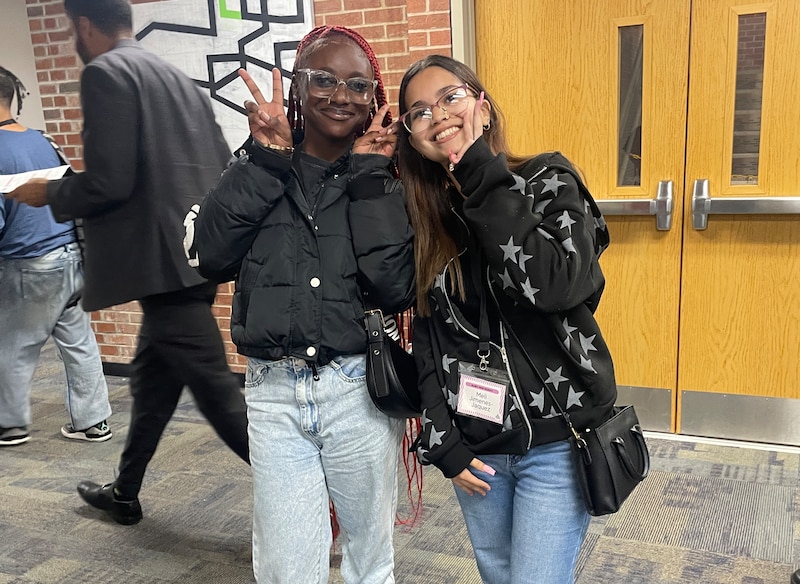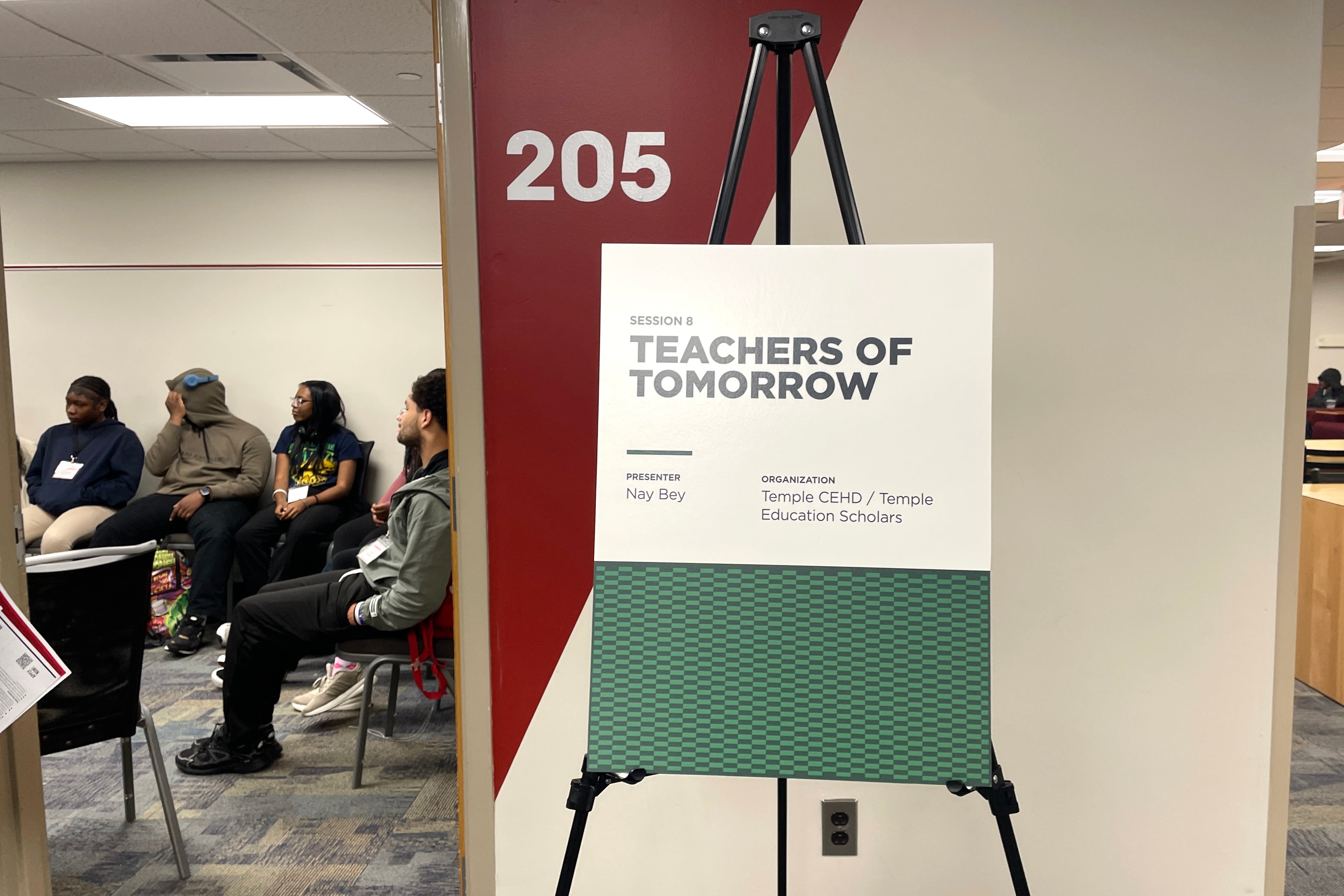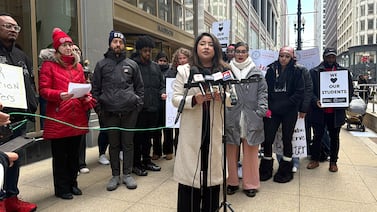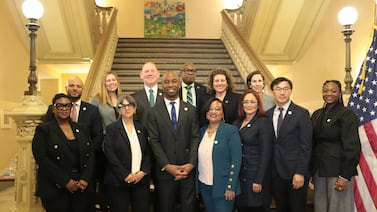Sign up for Chalkbeat Philadelphia’s free newsletter to keep up with the city’s public school system.
Why does Philadelphia have a teacher shortage? Monika Shealey hears one answer a lot.
People often tell Shealey, the dean of the College of Education and Human Development at Temple University, that young Philadelphians — particularly young Black and brown people — simply don’t want to become educators.
But on Thursday, Shealey told more than 200 Philadelphia high schoolers visiting Temple’s campus to learn about teaching careers that she believes otherwise.
“You are throwing that narrative out the window,” Shealey said at the Youth in Education Summit. “Let that be the story of the day.”
As Philadelphia struggles to retain and recruit teachers, education groups and leaders are doubling down on initiatives to inspire Philly teens to embark on careers in education.
In recent years, the district has begun the school year with hundreds of vacancies, and the number of graduates from teacher training programs in the state has plummeted.
There’s a particular shortage of Black male educators, who make up less than 10% of district teachers.
“The idea is that we want to increase the number of students and programs in what we call the ‘early pipeline’ space,” said Scott Gaiber, deputy chief of talent initiatives at Elevate 215, a local education advocacy group that helped organize the Thursday event.
The organization is part of a coalition of groups across the city to try to improve teacher recruitment. That coalition, the Philadelphia Citywide Talent Coalition, championed the district’s first career and technical education program for K-12 teaching, which launched in 2023. Since then, the coalition has also supported other initiatives at Philadelphia schools meant to increase students’ interest in teaching, like Thursday’s conference.
The students at the event are involved in different teacher training programs. Students from nine high schools participated, joining workshops on issues like how to apply for college teaching programs and what it’s like to be a Black or brown educator.
To Gaiber, the challenge is clear: even when young people say they’re interested in becoming teachers, several obstacles can derail them from ultimately becoming certified. For one thing, schooling is expensive. And getting a certification often requires overcoming bureaucratic hurdles.
The hope, he said, is that extra programming and “creating a supportive ecosystem” can lower those barriers and ultimately lead to a better-trained and more representative teacher workforce, even if the results won’t be evident for years.
For Elizabeth Melendez, a junior at Esperanza Academy Charter School who attended the event and helped lead a workshop for her peers, working with kids helped her confirm her interest in teaching.
Every week, she helps out with a class of first graders through an internship program at Esperanza.
“I know what I want to do now,” said Melendez. She said she plans to study child psychology and become a school psychologist.
Students learn about teaching through hands-on opportunities
Parkway West High School Principal William Brown said he knows many students are skeptical of becoming educators. Maybe they’ve heard that they could make more money doing something else, or they’re not sure if it interests them.
But he said he’s seen through the school’s early childhood career and technical education program that students often develop an interest in education once they’re exposed to it.
“It’s so important that the students get that hands-on experience,” said Brown.
Last school year, Brown worked with Philadelphia Academies Inc. to launch a program at his school meant to increase the number of Black and Brown male educators.
Students in the program first learn about the history of education in the U.S. and pedagogical best practices. Then they become student-teachers in the middle school that shares the building with Parkway West, earning a stipend for their work.
He said he believes the program has made a difference for his students. “A lot of our boys, especially, are taking their futures more seriously,” said Brown.

Thursday’s Temple event wasn’t a magic wand. By the end of the morning, some students in the halls said they still didn’t feel convinced that working in education was for them.
But others said the sessions had a real effect on how they pictured their future.
Meli Jimenes-Jaques, 17, said that as a senior at Olney High School, she knew she would soon have to decide what she would do after she graduated. She was interested in working with kids but she didn’t know if she should look into teaching or something else. But after hearing more about the career path of a teacher, she said she felt excited about applying for education programs.
“Before I wasn’t as sure,” said Jimenes-Jaques. “But after seeing all these people and hearing all their voices and their thoughts as well, it really just, like, cemented the fact this is really what I want to do.”
Rebecca Redelmeier is a reporter at Chalkbeat Philadelphia. She writes about public schools, early childhood education, and issues that affect students, families, and educators across Philadelphia. Contact Rebecca at rredelmeier@chalkbeat.org.






